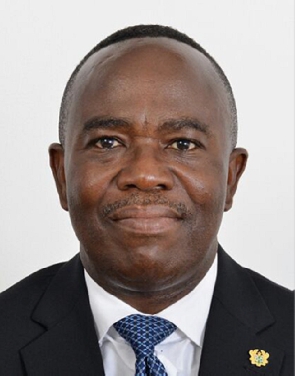 Controller and Accountant General, Kwasi Kwaning-Bosompem
Controller and Accountant General, Kwasi Kwaning-Bosompem
Selected accounting professionals have been taken through a sensitization workshop on the clean-up exercise in the banking sector undertaken by the Bank of Ghana (BoG).
According to the Controller and Accountant General, Kwasi Kwaning-Bosompem, the workshop was to afford the accountants the opportunity to have firsthand information on what actually led to the banking crisis witnessed in the sector and to equip them to offer practical professional advice to the government, going forward.
The BoG combed through the banking sector to ensure that the non-performing banks are either supported or collapsed.
Some nine local banks, 23 savings & loans companies, 347 microfinance institutions, 39 finance houses and 53 fund management companies have been closed down since 2017.
The failed banks include uniBank, Capital Bank, UT Bank, Beige Bank and others
Speaking at the launch of the monthly training for staff of the Controller and Accountant General’s Department in Accra on Tuesday, September 22, Mr Kwaning-Bosompem said “we have to build the capacity and equip our staff, the accountants to be able to do their work”.
“We need to know why these things came up, the reasons and to avoid it being repeated. This time banks are relevant to us, we engage and interact with the banks a lot.
“We have to understand what has gone on and therefore advise the government appropriately.”
It is recalled that the Governor of the Bank of Ghana, Dr Ernest Addison, said Ghana’s financial sector is currently in good health and better able to withstand external shocks compared to the financial sector at the beginning of 2017, following the recapitalisation exercise.
He said the sector is better capitalised, liquid, profitable and more efficient, and has adequate capital buffers to enable it manage any adverse external developments,
Speaking at the 17th Working Luncheon of the Ghana Association of Bankers, Dr. Addison said: “As regulators, we are very grateful for the support received – but urge the investigating bodies and judiciary, government, Chief Justice and security agencies to work steadily on recovering certain assets from shareholders, directors and loan defaulters of the erstwhile defunct banks. Currently, there are fifty-two cases in various courts of the country, 50 of which have been assigned to specific judges or courts.
“In addition, over sixty cases have been referred to the Special Investigative Team. The task is enormous, but we have confidence in our judicial system to bring those culpable to justice. The Bank of Ghana will continue to work with the Receiver to ensure that bottlenecks in the receivership process are cleared for an orderly winding-down of the defunct banks,” he said.
He added that : “I have every reason to feel confident about gains and achievements made so far in the financial sector. The financial sector is currently healthier and better able to withstand external shocks compared to the financial sector at the beginning of 2017. It is better capitalised, liquid, profitable and more efficient, and has adequate capital buffers to enable it manage any adverse external developments. Such an optimistic outlook seemed nearly impossible in 2017 when we started these reforms.
“A dynamic growth-oriented financial system must be strong, well-capitalised, and effectively supervised within a fair regulatory environment in accordance with international best practices and standards.
“There is therefore a huge regulatory burden on us to remain vigilant toward all forms of risk in the banking sector, and to tighten our regulatory and supervisory responsibilities to continue with efforts at strengthening and stabilising the banking industry.
“These reforms will ensure the safety and soundness of banks, aligning macro and micro-prudential risks to bank capital, and addressing cross-sectoral and cross-border risks to the industry. In order to address potential risks and properly risk-profile individual banks, we are taking steps to revise the current risk-based supervision framework in line with current developments in the global banking environment,” he said.